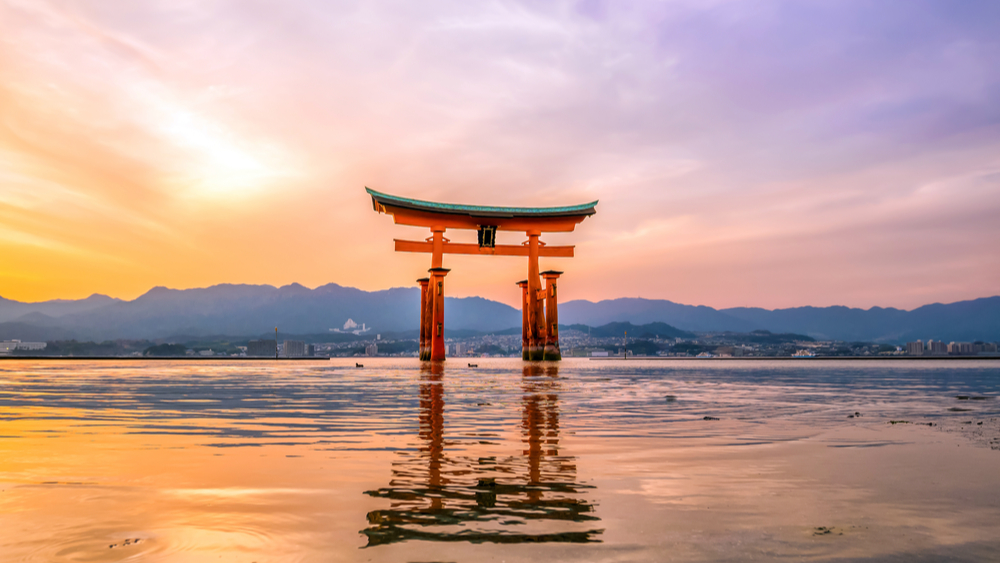Offshore online casinos dominate the offshore landscape in the Japan marketplace with operators deemed to be happy with the “status quo”.
These were the thoughts of Richard Hogg, Chief Operating Officer at Openbox Gaming, who joined CasinoBeats in the second part of its exploration of the Japanese gambling scene.
As it stands, under the current Japanese legislation, gambling, in general, is prohibited under Article 185 of the Penal Code, with the exception of betting on something for momentary amusement or specific events or sports permitted under special law.
These include the four public sports – horse racing, bicycle racing, powerboat racing and motorcycle racing – all of which are run by local governments or government corporations; the public lottery; and Japanese Football Pools.
Licences are required to operate these forms of gambling activities, which under the current legislation, are granted only to local governments or government-related entities.
“Current legislative reviews are focussed more on the land based sector…”
However, with a population in the region of 126 million, Hogg stated that Japan is “an obvious target for any gaming operator” with online’s offshore presence dominating the market.
“Offshore online casinos dominate the offshore landscape in the Japan marketplace at present which has been highlighted by successes seen by European entities entering the jurisdiction with traditional casino games,” he added.
“Sports betting is not as relevant or prevalent in Japan at present with these sites, although this isn’t to say Japanese aren’t interested in sports and sports betting. The operators in the region have traditionally been more specialist in the casino area, but in time I am sure we will see more sports betting given soccer, baseball, racing and of course sumo are very popular.
“Current legislative reviews are focussed more on the land based sector and whilst thought has been given to the online world and offshore operators nothing specific has been implemented and those operating in the sector have not faced any form of action against such operators.”
An exception to this is Pachinko, which Hogg claims is built into society, with the halls including numerous machines and seen as well attended by various demographics. This style of game is treated as an amusement activity – with players being awarded with tokens, which can then be sold for cash at nearby exchange centres.
“Not having a pure Japanese support team isn’t acceptable…”
The popularity of Pachinko, the the country’s preference on the land-based sector, could be the reason Hogg believes that a state sponsored approach for igaming outside of Japan’s current agreements “seems a long way off”, with the Japanese government said to be directed towards developing and finalising a number of integrated resort facilities, which as it stands, is limited to three.
He continued: “Even those operating from offshore have been involved in the occasional trail within Japan however, as an example one such case was dealt with under summary proceedings, which are not a formal trial at a summary court and as far as we understand no action was taken even though it was clear that the operator was deemed to be targeting Japanese citizens.”
Though the law was passed in 2018 that detailed rules and regulations for IR and casinos in the country must follow, Hogg stated that the process is still “ongoing”, with Japan’s national government only last month reiterating its economic policy document for 2022 – issued in June – explaining the role of IR’s as tourism complexes with casinos.
“A section of the 36-page economic policy summary is marked ‘Revival of tourism-oriented nation’, in relation to planned efforts to restart Japan’s inbound tourism market, which has been largely paused as a COVID-19 countermeasure.
“The paper – called ‘Basic policy on economic and fiscal management and reform 2022’ – says the national authorities will “strongly promote” IR development and “casino regulation”. According to previous commentary from investment analysts and would-be operators, the first casino resorts likely to be permitted under Japan’s liberalisation programme are not expected to start operating until the end of the current decade – at the earliest.
“IR’s are only the first stage of any gambling revolution, as we have seen in the USA remote gambling plays an important part and with Japan suffering financially as a jurisdiction this will play an important factor in any recovery.
“That said, there appears to be no urgency to review current legislation to consider this, but as we have seen in the USA this can very quickly change.”
“There is no low hanging fruit in the online gaming world anymore…”
While the conversations surrounding the aforementioned topics can continue and opinions on the matter can change as quickly as the direction the wind blows, there is one factor which will always attain the utmost importance in the Japanese market – localisation.
On tailoring products to the country, Hogg claimed that many very successful European online casino operators have “tried and failed” in the marketplace.
He explained: “There is no low hanging fruit in the online gaming world anymore and, whilst Japan has obvious attractions, there are many risks in entering the market. Copying and pasting successful sites doesn’t work.
“Not having a pure Japanese support team isn’t acceptable and being open minded to utilising a number of marketing channels using influencers and social media should make way instead of the more usual outlets.
“CPA’s are high via affiliate networks and won’t sustain your operation. Ensuring you have the right mix of recognised product, offers and promotions as well as building trust with your players is paramount to any success.”
Looking towards the future of Japan’s gambling scene, Hogg believes that many of the current operators in the region are “happy with the status quo” but stressed the importance of lessons learned.
He concluded: “Regulated markets regulation has an important part to play in ensuring players are protected socially and financially and only those who are fit and proper to run such an operation are able to do so.”

iGaming Innovation is to form one key aspect of this year’s SBC Summit Barcelona 2022, which takes place at Fira Barcelona Montjuïc on 20-22 September.
This will see 6,000 delegates enjoy a 12-track conference covering all aspects of the international sports betting and online casino industries, an exhibition with 200 companies showcasing their latest innovations, and a programme of spectacular evening networking events.
Visit the SBC Summit Barcelona website to book your all access or discounted group pass.










